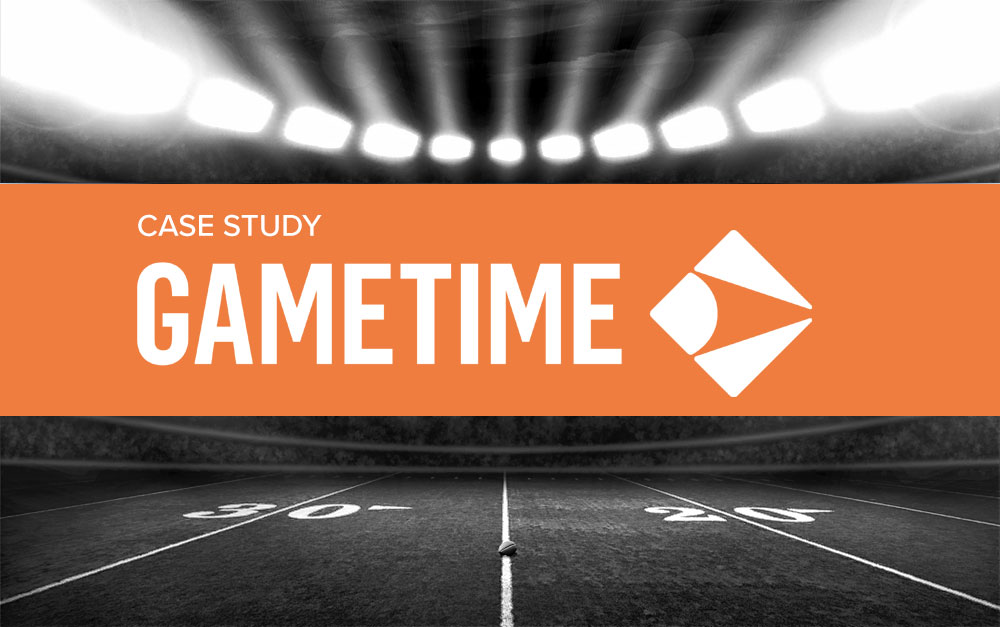Startup, Gametime, obtains patents, drives growth in the market with TurboPatent
Company
Gametime was founded in 2012, with the goal of providing easy mobile access to live events, such as sports, music, comedy and theater. While various companies sell tickets online, almost all require the user to print out paper tickets to be scanned at the gate, creating a major hassle for a population that increasingly expects to use their mobile device for everything. Gametime’s mobile-first solution enables users to buy, sell, distribute and scan tickets all from their phones, streamlining the process of attending events. Based in San Francisco, Gametime has launched in more than 50 cities in the United States.
Team
After identifying a need in the market in 2012, Gametime CEO Brad Griffith wrote the original application that contained the first seeds of inventive material. Subsequently, Griffith and his team of engineers built upon the original solution, developing additional features and functionality to differentiate Gametime, but without knowing if their innovations were patentable. They began working with TurboPatent® in 2013 and found that competitive advantages are often an indicator of patentable intellectual property.
Issues
As a technology-focused CEO, Griffith focused most of his efforts on development; progressing the solution and providing a better experience for users. Like many startup CEOs, he quickly learned about the benefits of patenting (including increased valuation of his company), but he struggled with the downsides of the traditional patenting process: high costs, long turnaround times, and an antiquated process.
Need
Consumers who want to buy or sell tickets are familiar with several large, highly-entrenched companies with which they can do business. These organizations want to maintain their positions at the top of the market and won’t hesitate to allocate their massive budgets toward developing copycat solutions to negate the competitive advantage of a smaller competitor, such as Gametime. Some of these companies have also been known to enter litigation to protect their intellectual property, which could bankrupt a startup. Thus, Gametime needed to protect its differentiating features from these industry giants and ultimately determined the best way to do this was to patent its technology.
Solution
When Gametime began working with TurboPatent it hadn’t yet filed any patents, so TurboPatent acted as their outsourced IP manager. Through invention discovery sessions, TurboPatent Engineers helped Griffith and his team identify which technology was patentable then used proprietary tools to draft patents and build an IP portfolio. Gametime benefited from TurboPatent’s objective analytics that provided insight into the novelty, subject matter eligibility, allowance rate and more so it could understand the true patentability of its inventions before dedicating budget toward patenting them.
Results
Using TurboPatent’s patent strategy and drafting services, Gametime was able to secure early filing dates for many of its technologies. These patents continue to protect its technology from large competitors and have carved them out a growing place in a multi-billion dollar industry.
Gametime has used TurboPatent to file eight patent applications, many through the Track One program. Two of its patents have been approved by the United States Patent Office with many of the others moving towards approval.
TurboPatent Engineers have provided the strategic oversight, domain expertise and drafting knowhow to fill the role of Gametime’s IP manager — protecting Gametime’s innovation, while enabling Griffith and his staff to focus on building their business. Gametime has been so delighted with its experience with TurboPatent that it now act as a reference for the patent drafting and strategy services.
Quote
“As a startup, it has been important for Gametime to protect our competitive advantage from other companies but we weren’t sure if we had patentable material to protect,” said CEO Brad Griffith.” TurboPatent’s TPEs identified specific inventions, then took care of the drafting and filing, so we didn’t have to think about it.”





